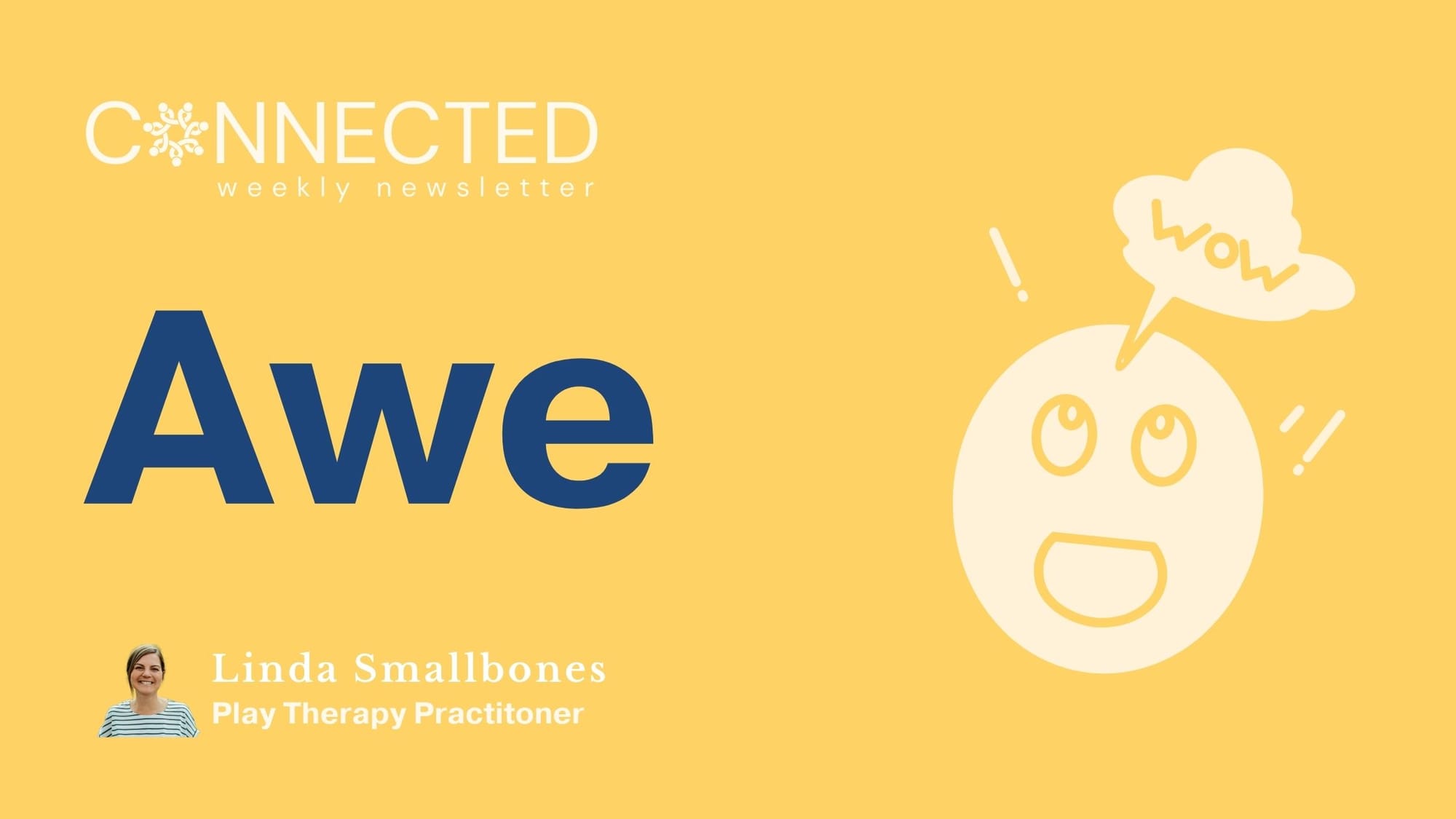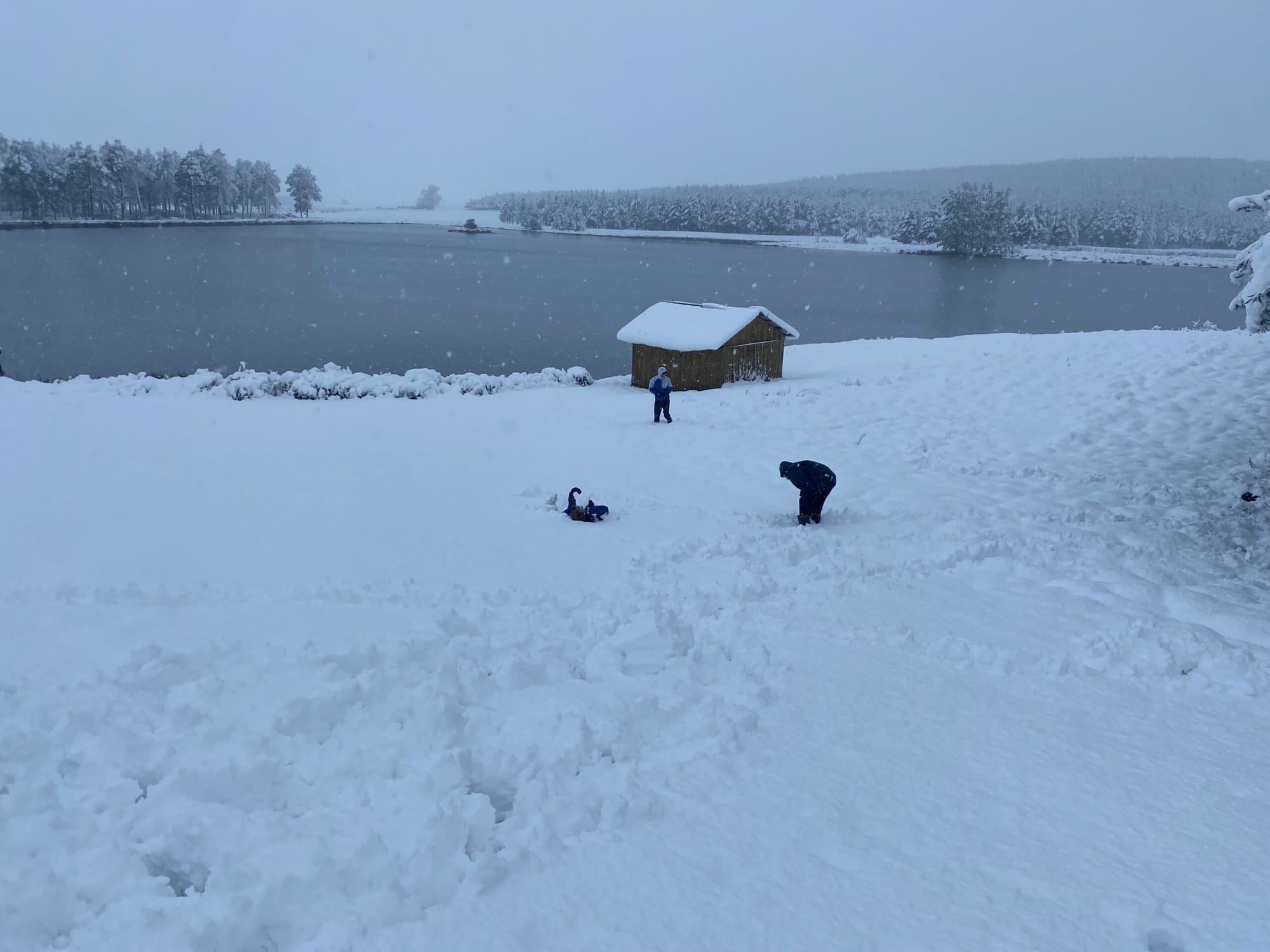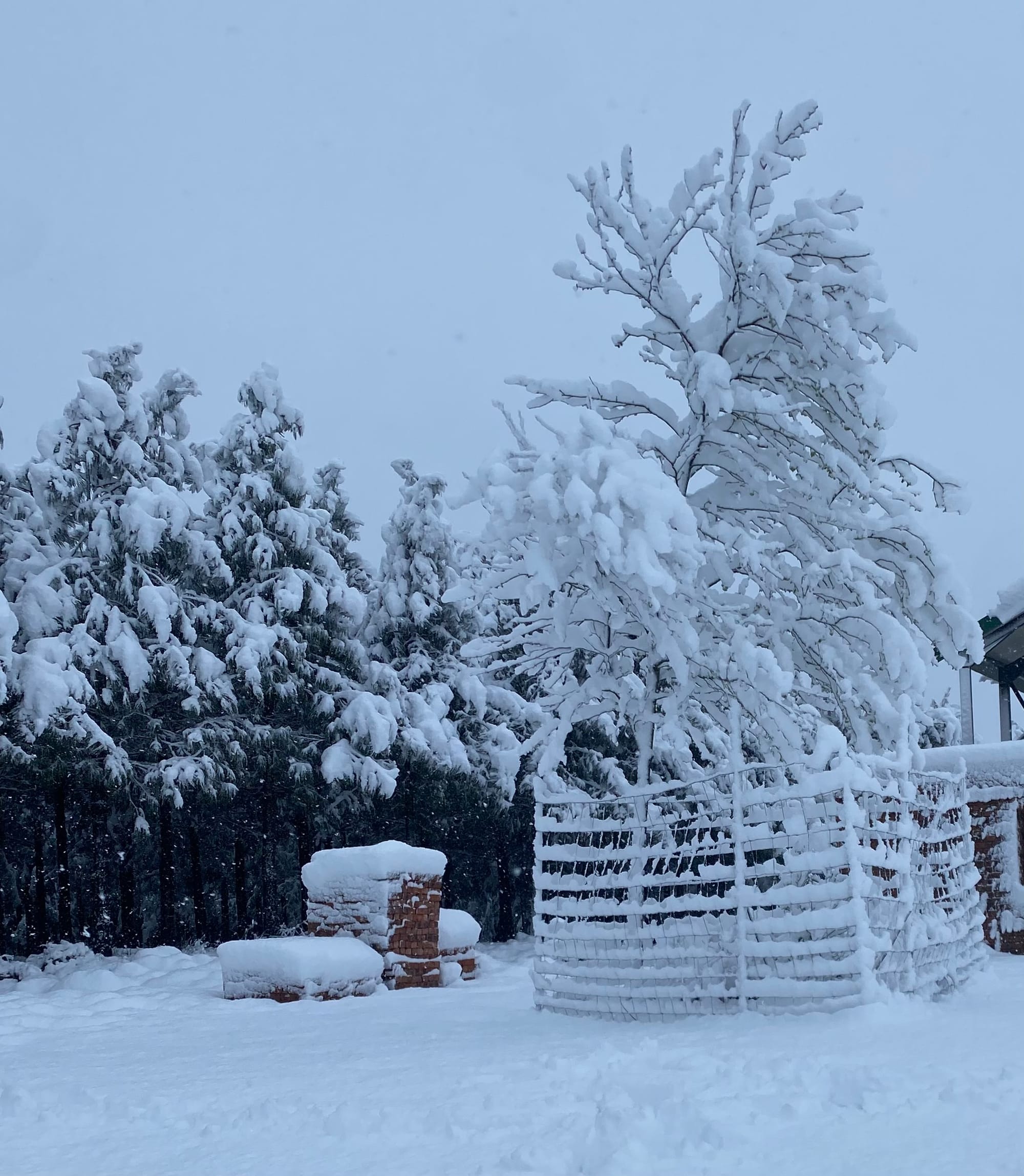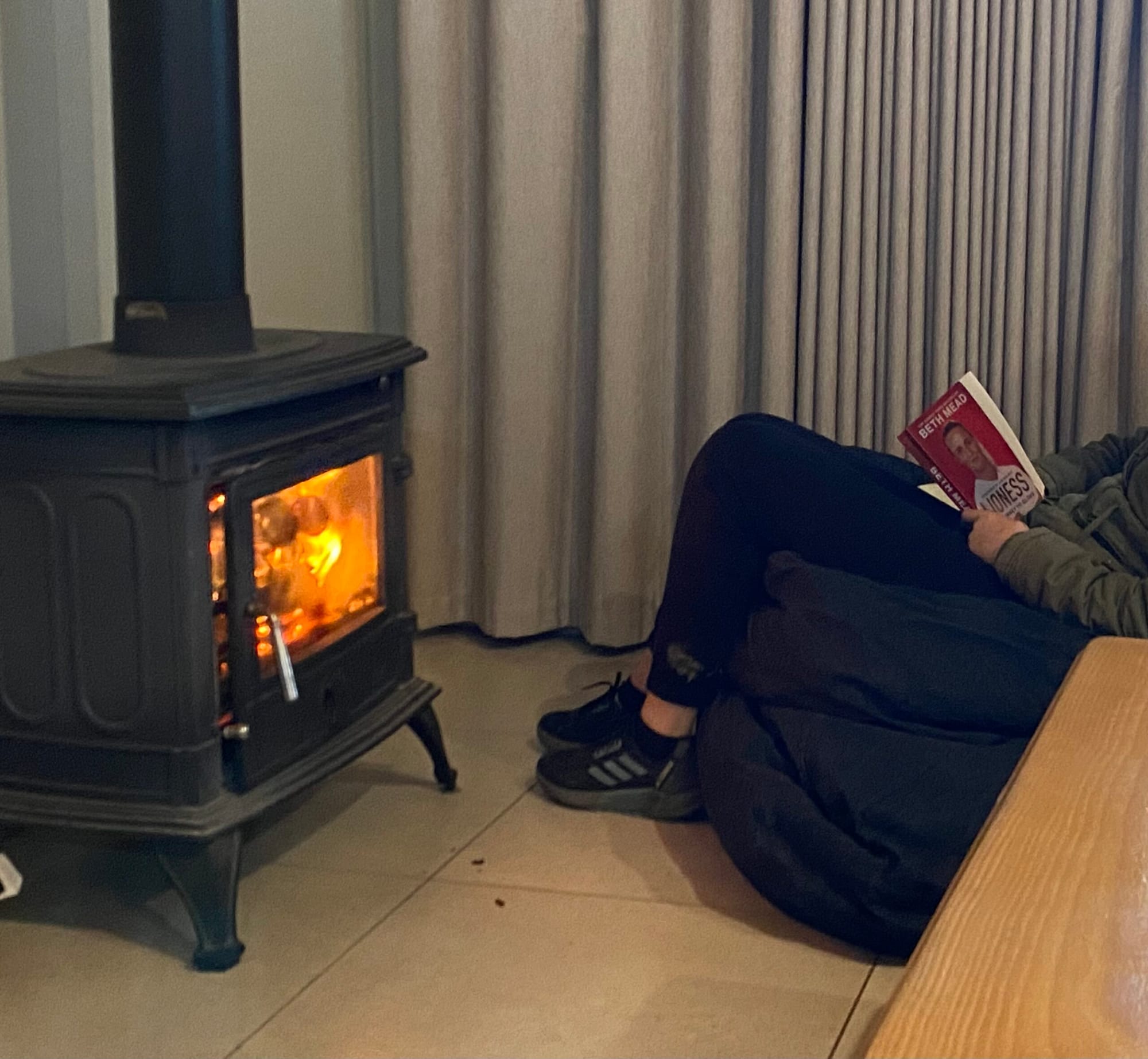Awe
Explore the importance of awe in nature for mental well-being, how to model it for children, and the benefits of stepping away from screens.

We spent part of the holiday in a cottage in a wood (literally) and got happily snowed in (literally), but only for 24 hours. For a family like ours, born and bred in mostly the sub-tropical parts of South Africa, the snow was a delightful, awe-inspiring experience. We saw the snow forecast but didn’t know it would be snow-on-the-ground, deep-up-to-the-tips-of-our-gumboots type of snow. It was powdery, beautiful, and glorious to play in!

We also had lots of indoor time, and I read The Anxious Generation by Jonathan Haidt. I agree with the reviews that it is essential reading for parents, and I highly recommend you get yourself a copy. I will be unpacking some of my learning from the book here over the next while (so stay tuned!).
The book is about the move away from children having a play-based childhood to now having a phone-based childhood. Jonathan Haidt, a Social Psychologist, draws on research from around the world to expound on the damage done to mental health in teenagers who navigate life predominantly via screens.
One of the chapters, Spiritual Elevation and Degradation, talks about what we have lost in our digital age and six practices that we have less of—or even none of—that we may not know we need. One of these six is finding awe in nature.
I’ve written about this before. (Funny how this previous article was also after a time away as a family in which we didn’t use devices at all. One really has to make space for engagement with awe in nature.)

Haidt writes that being in nature in a present and embodied way—using all the senses to truly experience the environment—is essential for the health of the soul and spirituality. He is a university professor and gave his students an assignment to do an “awe walk” and write about it afterwards. Note: He teaches in New York City, and yet he says, “The written reflections they turned in for that week’s homework were among the most beautiful I’ve seen in my 30 years as a professor.”
You can take an awe walk anywhere in the world, even in one of the busiest cities, with the right intention. Students found moments of awe and connection with nature.
The Benefits of Experiencing Awe
There are five ways that experiencing awe has been found to improve well-being:
- Changes in neurophysiology – Moving from anxiety to a more calm and regulated state.
- Decreased focus on the self – Reducing selfish focus, which is correlated with poor mental health.
- Increased desire to be social towards others – Decreasing isolation.
- Increased social integration – Moving towards true connections with others.
- Heightened sense of meaning – Cultivating a sense of purpose.
(Source: Monroy and Keltner, 2023)
We can achieve none of these benefits in a positive way from a constant phone-based lifestyle.
Teaching Awe
We only have now to teach our children to cultivate moments of awe. We can’t stop them from living in a digital age—we’re already all in it. But we can model for them what it looks like to step away from screens regularly and make space for awe.
It’s possible and necessary, not just for their well-being, but for ours too.
Parents may say that it’s too late, that their teenagers are so heavily invested in their devices, that childhood play has passed them by. This is not true. My children (14 and 13 years old) taught me this holiday that they need play, they love to play, and they need times and spaces in which to play—in nature.
We all thrived during the time we spent together—a truly joyful time full of awe!

"I wasn’t the only one engrossed in a book!"
Parenting Support
If you are a parent wanting to explore how to cut down on your own or your child’s screen time but you’re not quite sure where to start, I may have a process that can help.
Parenting for Connection is a four-part journey to increase emotional connection between you, yourself, and your child. You can find out more here.
Learn more about Jonathan Haidt on his website: https://jonathanhaidt.com/